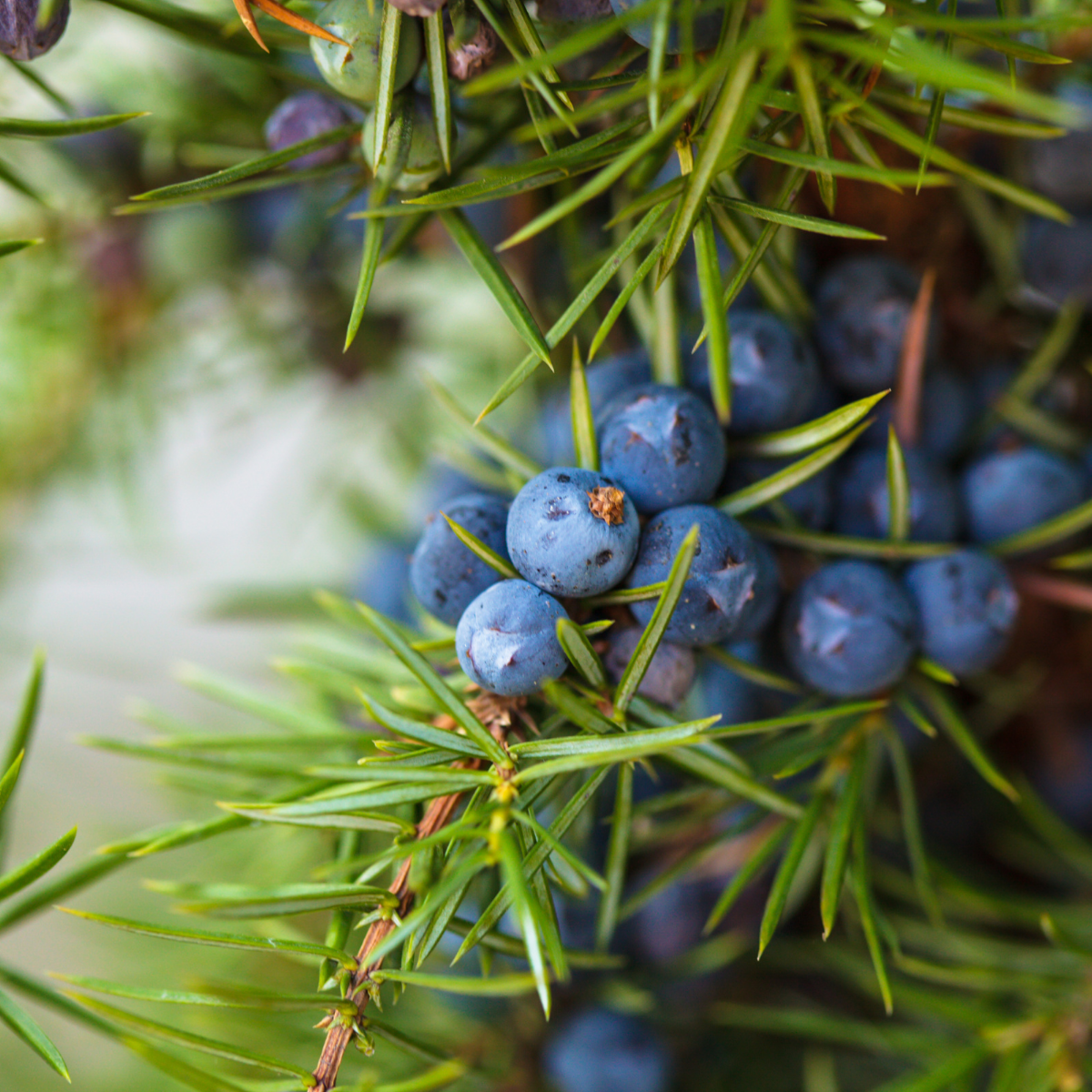A to Z of French Herbs - Juniper Berries - Baies De Genièvre
In a country known for its wine, cheese, and baguettes, these little berries often play a stealthy role in some of the most iconic French dishes. From tantalizing sauces that make you go 'oh là là' to their secret flirtations with game meats, juniper berries have been spicing up French recipes for centuries.
Juniper Berries in French are pronounced baies de genièvre iIn French.
One of the things to note about Juniper Berries is that they aren’t actually a berry. They are the the female seed cone from the plant and by many would be considered a spice, not a herb but I’m adding them to this series anyway.
These berries come from the juniper tree or Juniperus Communis as its botanical name is called. Which is part of the conifer family. It’s an evergreen shrub that grows around the world in North America, Europe, and Asia. In fact, one of the highest known trees on earth in the northern Himalayas is the juniper forest at an altitude of 4,900 meters or 16,100 ft in Southeastern Tibet.
The violet blue fruits/berries are harvested all year round and can be crushed lightly, coarsely ground, and used by extracting its essential oils or the berries being added to beverages and dishes to add flavor.
They are high in vitamin C and antioxidants and offer various health benefits. They are also powerful detoxifiers and are often used to aid and stimulate the bladder and kidneys. But like all the herbs in this series, they should be used in moderation and in discussion with your GP or physician.
Juniper berries have been found as far back in history as in ancient Egyptian times where archaeologists and Egyptologists have found evidence of Juniper berries in multiple tombs despite the berries not being known to be grown in Egypt. So the berries found would have been imported into Egypt and possibly from Greece.
The Greeks recorded their use of juniper berries in medicinal uses way before they started using them in food. Many of the athletes in the first Olympics in Ancient Greece used juniper berries because they believed that they increased physical stamina.
Romans used juniper berries as a cheap alternative to black pepper which was being imported at the time from India.
Throughout Europe, juniper trees were planted near the house as it was believed that the plant played a role in protecting the house and inhabitants from disease, evil spirits, snakes and witches.
Particularly in Europe and the UK people would know the juniper berry for the flavour it gives to gin but it is used in many different ways throughout French cuisine and cuisines around the world.
In France though what is thought to be a predecessor to gin is genièvre which is an artisanal eau-de-vie made from barley, wheat, rye, and oats fermented and then distilled with Juniper seeds.
In 1820 there were around 120 distillers of Genievre which was consumed locally and exported to the UK. The dreds from the distillation were used as feed for livestock. This is a liqueur and not a spirit like Gin. There are now only two traditional and artisanal distilleries in France.
Fresh Juniper Berries are rarely seen as they need two years to ripen so often the dried juniper berries are sold and used like you would a herb.
They often come in different varieties with some considered too bitter to eat and digest whilst others are used in cuisine. American Author Harold McGee who wrote Food and Cooking The Science and Lore of the Kitchen described Juniper Berries in cuisine as giving a fresh and citrus note to dishes. He said that the outer scales of the berries are relatively flavourless, so the berries are almost always at least lightly crushed before being used as a spice. They are used both fresh and dried, but their flavour and odour are at their strongest immediately after harvest and decline during drying and storage.
In French cuisine, you can find juniper berries being used in many Alsatian dishes and in particular Choucroute garnie which is French for sauerkraut accompanied with meats. They are also often used in brines for white meats like chicken, turkey, and pork and wild games as well as wild boar.
You can also find Juniper Berries being used to flavor a beurre blanc sauce.
Juniper Berries are also often used in perfumes and often in collaboration with lavender in men’s fragrances like Cool Water by Davidoff, Black XS by Pacco Rabanne, and Jazz Prestige by Yves Saint Laurent.
Absolutely Fabulous Joanna Lumley once said about Juniper Berries.
“I’m not terribly good at three-page recipes - I tend to skip bits - or anything that involves marinating things in juniper berries.”



